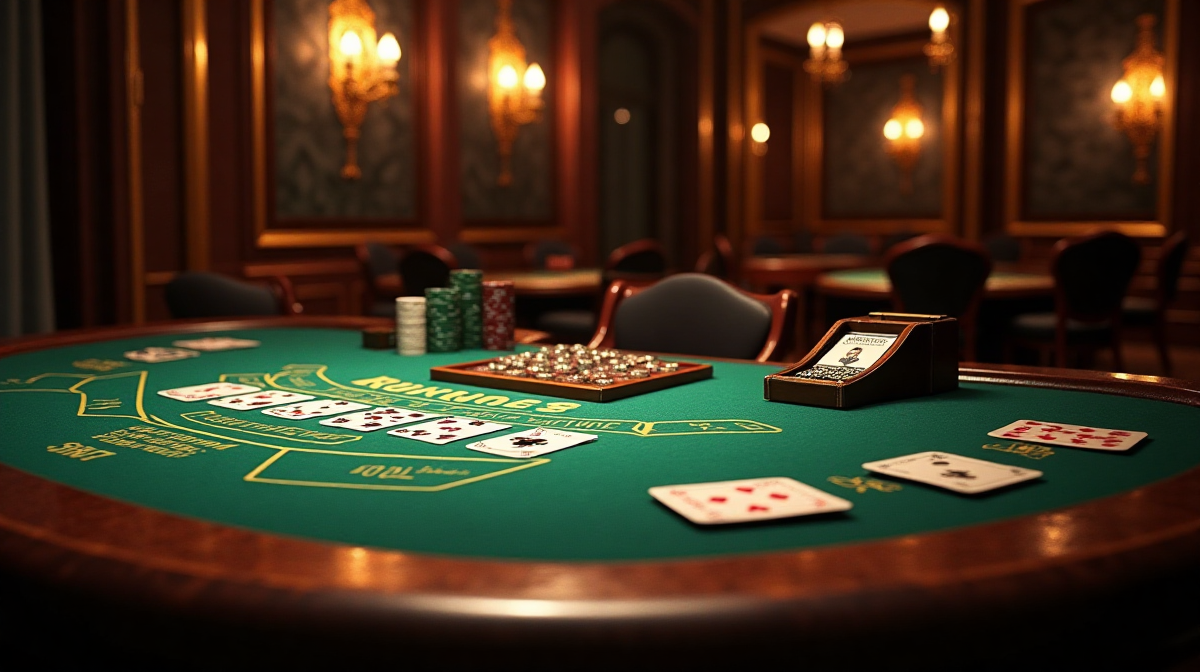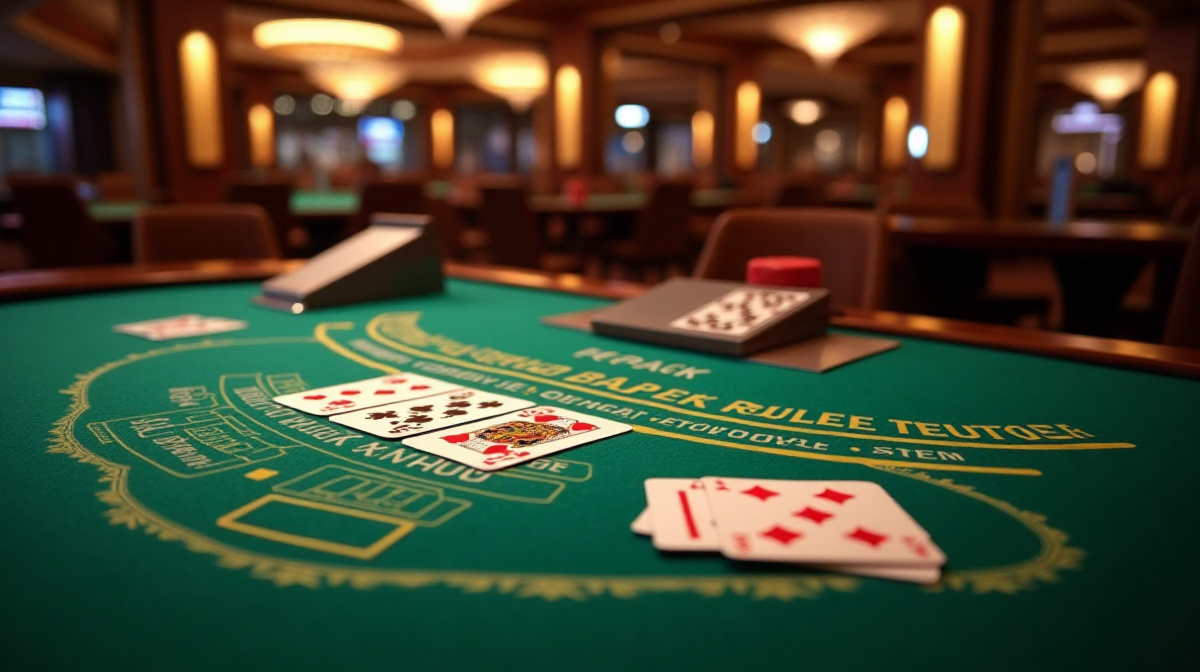Blackjack Dealer Secrets: Win More Now!
What Most Players Don't Understand About Blackjack
Blackjack, a game of skill and chance, often leaves players feeling at the mercy of luck. However, beneath the surface lies a strategic landscape often overlooked. Most players focus solely on their own hands, neglecting the invaluable information provided by the dealer and the subtle nuances of the game. Understanding the dealer’s perspective is paramount to consistently improving your odds. Many are unaware of the rigid rules the dealer adheres to, and how exploiting those constraints can drastically shift the advantage in your favor. Even exploring options like i lot bet can give you a different avenue for enjoying the game.
The Dealer's Perspective: Rules & Constraints
The dealer isn’t playing against you; they’re playing by a strict set of rules dictated by the casino. They must hit on 16 or less and stand on 17 or more. This seemingly simple rule is the foundation of many exploitable situations. Dealers have no choices based on your hand, only on their own. This predictability is your biggest asset.
Why Knowing Dealer Secrets Gives You an Advantage
By understanding these rules and the dealer’s procedural patterns, you can make more informed decisions, adjust your betting strategy, and ultimately increase your chances of winning. It’s about shifting from a reactive player to a proactive one, anticipating the dealer's actions and capitalizing on their limitations. For those looking for alternative ways to engage, a quick i lot bet sign up might be a good starting point.
Understanding Dealer Rules & Protocols
The Dealer's Hit and Stand Rules – A Deep Dive
The dealer's hit/stand rules aren’t arbitrary. They're mathematically designed to give the house a slight edge. However, this edge isn’t insurmountable. Knowing that a dealer must hit a 16 against your 10 means you can adjust your play accordingly. Understanding this constraint is crucial.
Dealing Procedures: Speed, Accuracy, & Tells
Experienced dealers develop routines. Their dealing speed, chip handling, and even subtle mannerisms can offer clues. While not foolproof, observing these patterns can provide insight into their focus and potentially reveal tells. It’s about attentive observation, not relying on superstitions.
Dealer Communication: What it Reveals
Dealers are trained to be professional and avoid giving away information. However, their tone, eye contact, and even the speed of their responses can sometimes offer subtle cues. Don’t read too much into it, but be aware of the possibility.
Core Dealer Secrets to Exploit
The Importance of the Dealer's Upcard
The dealer’s upcard is your primary source of information. It dictates your entire strategy. It's the single most important element to consider before making any decision.
Upcard Reading 101: Strong vs. Weak Cards
A dealer showing a low upcard (2-6) is considered “weak” because they have a higher probability of busting. A high upcard (7-Ace) is strong. This dictates whether you should be more aggressive or conservative. Remember, even a small advantage is significant in the long run.
Adjusting Strategy Based on Dealer's Upcard – Specific Examples
If the dealer shows a 5 or 6, you should generally stand on 12-16. If the dealer shows a 2 or 3, you should hit on 12-16. These are basic examples, but illustrate the principle. Understanding basic strategy charts, tailored to the dealer’s upcard, is essential. Consider the thrill of a different kind of bet—i lot bet offers a unique experience.
Hole Card Awareness & Exploitation
Basic Hole Carding Techniques
Hole carding, while often associated with illegal practices, can involve legal observation. Observing slight reflections or patterns in the discard tray can sometimes reveal the dealer’s hole card. This is extremely difficult and requires significant practice.
Recognizing Patterns & Betting Adjustments
Even without a clear view of the hole card, observing the dealer’s behavior after dealing can hint at its strength. A nervous dealer after dealing a 10 might suggest a weak hole card. Adjusting your bets accordingly is key.
Bust Potential: Capitalizing on Dealer Weakness
Identifying High Bust Card Scenarios
When the dealer shows a low upcard (2-6), their bust potential is high. This is your opportunity to play more aggressively.
When to Take Risks & When to Play it Safe
If the dealer is showing a 4, 5, or 6, you can afford to take more risks, doubling down on favorable hands. When the dealer shows a high card, play it safe and avoid unnecessary risks. Thinking about your strategy while potentially placing an i lot bet can help refine your overall game.
Advanced Dealer Reads & Techniques
Table Management: Recognizing Table Trends
Hot/Cold Tables – Detecting Statistical Anomalies
Tables go through hot and cold streaks. A “hot” table sees a high frequency of player wins, while a “cold” table favors the house. Recognizing these trends can influence your betting decisions.
Bankroll Management & Dealer Perception
A calm, confident player with a well-managed bankroll is less likely to attract unwanted attention. Avoid erratic betting patterns and maintain a professional demeanor.
Card Counting Basics
The Hi-Lo System: A Simplified Explanation
Card counting, while legal in most jurisdictions (though casinos may ask you to leave), involves tracking the ratio of high to low cards remaining in the deck. The Hi-Lo system is a popular method.
How Dealers Detect Card Counters – & How to Avoid Detection
Dealers are trained to spot card counters. Avoid making large bet increases after the count becomes favorable, and vary your betting patterns.
Bet Sizing Strategies to Leverage Dealer Conditions
When to Increase Bets Based on Dealer Weakness
When the dealer shows a weak upcard and the count is favorable, increase your bets.
When to Decrease Bets to Fly Under the Radar
When the count is unfavorable or you suspect the dealer is onto you, decrease your bets to blend in. Don't forget, you can always explore options like blackjack betway for a different experience.

Common Dealer Mistakes & How to Benefit
Misdeals & Procedure Errors: Understanding Your Rights
Dealers sometimes make mistakes. Know your rights regarding misdeals and procedure errors. A misdeal should be corrected, and you shouldn't be forced to play under unfair conditions.
Slow Dealers & Time Management – Exploiting the Pace
A slow dealer gives you more time to analyze the situation and make informed decisions. Don't rush your play.
Psychological Levers: Subtle Influences & Dealer Behavior
Some players attempt to influence the dealer through conversation or subtle psychological tactics. This is generally ineffective and can even be counterproductive.

Blackjack Etiquette & Maintaining a Low Profile
The Importance of Respectful Conduct
Always treat the dealer and other players with respect. Good etiquette is essential for a pleasant gaming experience.
Avoiding Suspicion: Blending In & Playing Smart
Avoid drawing attention to yourself. Blend in with the other players and play smart.
Recognizing When to Stop Playing & Walk Away
Knowing when to quit is crucial. If you're on a losing streak, don't chase your losses.
Conclusion: Mastering the Dealer’s Game
Recap of Key Dealer Secrets
Understanding the dealer’s rules, observing their procedures, and exploiting their constraints are key to improving your blackjack game. The dealer’s upcard is your most valuable tool.
Resources for Further Learning
Numerous books and websites offer in-depth strategies for blackjack. Utilize these resources to expand your knowledge.
Final Thoughts: Consistent Practice & Smart Play are Key
Mastering blackjack takes time and dedication. Consistent practice and smart play are essential for long-term success. Don’t underestimate the power of understanding the game—and you might even find a side-bet like i lot bet adds to the fun. A solid foundation in the game, combined with a little luck, can significantly improve your results.

